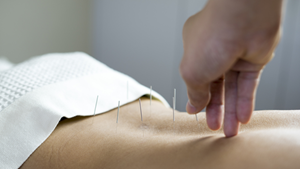KPWHRI in the Media 2022
2022
December 1-31
Senior Investigator David Arterburn, MD, MPH, comments on warning signs for weight gain
An article in AARP focusing on possible triggers for weight gain featured comments and advice from Arterburn, an expert on obesity treatment and research.
- AARP, December
7 warning signs for weight gain
Clinician engagement key for implementation of suicide risk prevention models
Read the paper.
Senior Collaborative Scientist Julie Richards, PhD, MPH, coauthored a new study in BMC Psychiatry that looked at ways of implementing suicide risk prevention models that are patient-centered, support clinicians, and are sustainable.
New study analyzes cancer screening guidelines
Read the story.
A new study co-led by KPWHRI investigator Aruna Kamineni, PhD, MPH, evaluated U.S. cancer screening guidelines to analyze how well the guidelines reported on possible harms from cancer screening. The study highlights inconsistencies in reporting on harms that could be improved to help clinicians and patients make more informed screening decisions.
- Managed Healthcare Executive, Dec. 8
NCI study analyzes the harms from cancer screening
November 1-30
Cannabis screening questionnaire shows promise
Read the paper.
A new study led by KPWHRI Collaborative Scientist Tessa Matson, PhD, MPH, found that a single screening question used in routine primary care performed well to screen for cannabis use disorder in a state with legal cannabis use.
October 1-31
Malaria study finds that whole-parasite vaccine conveys protection
Read the news release.
A malaria vaccine study overseen by KPWHRI Senior Investigator Lisa Jackson, MD, MPH, working with collaborators at the University of Washington and Seattle Children’s, found that a genetically engineered whole-parasite vaccine was safe for volunteers in trials and elicited antibodies. Insider featured a trial participant in their story on the results.
- Insider, Oct. 29
A woman volunteered to get bitten by hundreds of mosquitoes to help create a new malaria vaccine. Then she got malaria.
Black women at higher risk of death from breast cancer
KOMO News cited research from KPWHRI and the University of Washington that found that Black and Asian women are more likely than white women to experience delays in getting a breast biopsy after an abnormal mammogram.
Former KPWHRI Executive Director Eric Larson, MD, MPH, talks about reducing falls at home
AARP spoke with Larson for an article on how to make stairs safer and prevent falls for older adults.
- AARP, Oct. 7
8 ways to make the stairs safer at home
Cataract surgery linked with lessened dementia risk
Read the news release.
Research based on KPWHRI’s Adult Changes in Thought (ACT) Study led by former KPWHRI Executive Director Eric Larson, MD, MPH, found that cataract surgery is associated with 30% lower risk of dementia in aging population.
- Managed Healthcare Executive, Oct. 5
Assessing the aging eye and the risk of dementia
September 1-30
Malaria study finds that whole-parasite vaccine conveys protection
Read the news release.
A malaria vaccine study overseen by KPWHRI Senior Investigator Lisa Jackson, MD, MPH, working with collaborators at the University of Washington, Fred Hutch, and Seattle Children’s, found that a genetically engineered whole-parasite vaccine was safe for volunteers in trials and protected them from infection. NPR featured a trial participant in their story on the results.
August 1-31
New open data released to help understand Alzheimer’s disease
Read the news release.
Researchers have released new open data showing the specific types of cells and neurons that die off or change in Alzheimer’s disease as part of a collaboration between the Allen Institute, KPWHRI, and the University of Washington School of Medicine.
- NPR, Aug. 1
Alzheimer's researchers are looking beyond plaques and tangles for new treatments - Fierce Biotech, Aug. 2
In search of Alzheimer’s drug targets, Allen Institute builds massive brain cell map
Dementia risk screening tool shows promise
Read the news story.
Assistant Biostatistics Investigator Yates Coley, PhD, spoke to Medscape about a recent publication that assessed performance of a new tool to help identify more older adults with undiagnosed dementia.
- Medscape, Aug. 9
New tool helps gauge risk of undiagnosed dementia
Malaria study finds that whole-parasite vaccine conveys protection
Read the paper.
A malaria vaccine study overseen by KPWHRI Senior Investigator Lisa Jackson, MD, MPH, working with collaborators at the University of Washington, Fred Hutch, and Seattle Children’s, found that a genetically engineered whole-parasite vaccine was safe for volunteers in trials and protected them from infection.
- Genetic Engineering & Biotechnology News, Aug. 25
Malaria protection conferred by genetically engineered whole-parasite vaccine - KOMO-AM, Aug. 27 (no link available)
A new study to raise clinician awareness about drugs known to increase fall risk
Read the news release.
A collaboration between KPWHRI and the University of Washington School of Medicine will test a program to raise awareness about how certain dementia medications may increase the risk of falls in older adults.
- McKnights Long-Term Care News, Aug. 23
New program will test clinician awareness of drugs known to increase falls in dementia
July 1-31
New open data released to help understand Alzheimer’s disease
Read the news release.
Researchers have released new open data showing the specific types of cells and neurons that die off or change in Alzheimer’s disease as part of a collaboration between the Allen Institute, KPWHRI, and the University of Washington School of Medicine.
- Ellensburg Daily Record, July 28
Cell by cell, scientists are building a high-resolution map of brain changes in Alzheimer’s disease - Inside Precision Medicine, July 28
Data trove released by Seattle Alzheimer’s Disease Brain Cell Atlas - Technology Networks, July 29
Cell-level map builds an atlas of Alzheimer’s brain changes - India 07, July 29
A cell-level map helps build an atlas of how the brain changes in Alzheimer’s
Learnings from deploying community resource specialists at Kaiser Permanente Washington
Associate Investigator Clarissa Hsu, PhD, spoke about the collaborative work of creating the community resource specialist role and implementing it in Washington.
- Healthcare Innovation, July 25
Lessons learned deploying community resource specialists at KP Washington
June 1-30
Most medical cannabis use not documented in electronic health records
Read the paper.
Assistant Investigator Gwen Lapham, PhD, MPH, MSW, comments on her recent study looking at the prevalence of patient-reported medical cannabis use.
- Mediquality/Reuters Health, June 11
Medical cannabis use often left undocumented in electronic health records
Eye conditions may help screen for Alzheimer’s disease
Read news release.
Findings from the ACT Study on a link between certain eye conditions and Alzheimer's disease are referenced in discussing a new study on eye health and dementia.
- Best Life, June 8
This change with your eyes may prevent dementia, new study says
Senior Investigator Kathy Bradley, MD, MPH, discusses alcohol screening
Kathy Bradley and several other KPWHRI investigators contributed expertise to the new Core Resource on Alcohol from the NIAAA (National Institute on Alcohol Abuse and Alcoholism).
- GIST Healthcare, June 6
NIAAA releases new materials to screen and treat alcohol use disorder as alcohol-related deaths spiked
May 1-31
KPWHRI starts first clinical trial for schistosomiasis vaccine
Read the news story.
The Phase I trial could pave the way for the first-ever vaccine against schistosomiasis, which impacts an estimated 200 million people worldwide.
- GeekWire, May 31
Seattle biotech startup backed by Gates Foundation launches trial for snail fever vaccine - KLUR8, May 31
PAI Life Sciences Doses First Healthy Volunteer in Schistosomiasis Vaccine Clinical Trial
Senior investigator Eric Larson, MD, MPH, writes about age-related memory changes
- 3rd Act Magazine, May 2022
Enlightened Aging: Forgetful Need Not Lead to Fretful
Is blood pressure reading more accurate at home or clinic?
Read news release.
Home blood pressure monitoring demonstrated to be an excellent alternative for making new diagnoses of hypertension.
- Business Daily Africa, May 18
Why home-based tests are ideal for blood pressure screening
March 1-31
Social risks: Do patients want health systems to help?
Read the news story.
SONNET (Social Needs Network for Evaluation and Translation) study led by KPWHRI’s Leah Tuzzio, MPH, looks at patients’ unmet social risks and their desire for assistance.
- Healthcare Innovation, March 30
Research explores patients’ desire for assistance with unmet social needs
Senior Investigator David Arterburn, MD, MPH, comments on story on safer weight loss surgeries
- WebMD, March 29
Lap band failures drive many to safer weight loss surgeries
Implementing virtual care during the COVID-19 pandemic
Read the paper and report.
A report led by the Center for Community Health and Evaluation (CCHE), part of KPWHRI, assesses changes in safety net health centers’ capacity to implement virtual care and the experience of health care staff in delivering telehealth during the pandemic.
- California Health Care Foundation, March 28
Two reports detail health centers’ implementation of telehealth visits for underserved patients during the COVID-19 pandemic
Is blood pressure reading more accurate at home or clinic?
Read the news release.
Home blood pressure monitoring demonstrated to be an excellent alternative for making new diagnoses of hypertension.
- HealthDay, March 17
Home-based BP measurements comparable to ambulatory BP monitoring - VeryWell Health, March 16
Your blood pressure reading is likely more accurate at home - WebMD, March 8
Home blood pressure testing better than at clinics: study - California News Times, March 3
Is blood pressure reading more accurate at home or clinic?
Senior Investigator Jessica Chubak, PhD, comments on study that found canine affection may help reduce pain
- CNN, March 9
Affection from a dog really is medicinal, according to a new study - People.com, March 10
Dogs can reduce pain in ER patients, study finds - Smithsonian Magazine, March 15
Therapy dogs help reduce pain in emergency room patients - Yahoo Life, March 15
A new study found that affection from dogs could ease physical pain in humans - The Black Chronicle, March 14
Affection from a dog is medicinal, according to a new study
Effect of offering care management or online dialectical behavior therapy skills training vs usual care on self-harm among adult outpatients with suicidal ideation: A randomized clinical trial
Read the paper.
Research compared 2 low-intensity outreach programs with usual care for prevention of suicidal behavior among outpatients who report recent frequent suicidal thoughts.
- Duluth News Tribune, March 1
Outreach via electronic patient portal ineffective at reducing self harm, study finds
February 1-28
Effect of offering care management or online dialectical behavior therapy skills training vs. usual care on self-harm among adult outpatients with suicidal ideation: A randomized clinical trial
Read the paper.
Research compared 2 low-intensity outreach programs with usual care for prevention of suicidal behavior among outpatients who report recent frequent suicidal thoughts.
- Post Bulletin, Feb. 28
Outreach via electronic patient portal ineffective at reducing self harm, study finds - MedPage Today, Feb. 15
Low-intensity care options flop for self-harm prevention
Recent studies on breast cancer screening
Read the story.
Researcher Ellen O’Meara, PhD, and affiliate investigator Diana Miglioretti, PhD, estimate that 15% of screen-detected breast cancers, about 1 in 7, are overdiagnosed in those who screen every other year.
- MedPage Today, Feb. 28
Study: Breast cancer is still being overdiagnosed
ACT Study/Alzheimer’s research
Read news release.
Kaiser Permanente, University of Washington School of Medicine, and University of California San Diego join to lead the next phase of aging brain study.
- World Economic Forum, Feb. 1
Here’s how exercise alters our brain chemistry — and could prevent dementia
Use of recombinant zoster vaccine associated with Guillain-Barré syndrome in older adults
Read the commentary.
Eric B. Larson, MD, MPH, and Jennifer C. Nelson, PhD, comment that while a recent study found that the recombinant zoster vaccine was linked to a small increase in Guillain-Barré syndrome, on balance, benefits outweigh safety concerns for the vaccine for adults.
- Annals of Internal Medicine, Feb. 28
In older adults, use of a recombinant zoster vaccine was associated with Guillain-Barré syndrome
January 1–31
Cataract surgery linked with lessened dementia risk
Read the news release.
Research based on KPWHRI’s ACT Study led by Eric Larson, MD, MPH, finds that cataract surgery is associated with 30% lower risk of dementia in aging population.
- National Institute on Aging, Jan. 31
Cataract removal linked to a reduction in dementia risk - New York Times, Jan. 24
Cataract surgery may reduce your dementia risk - Money Talks News, Jan. 17
Kaiser Permanente study indicates people who undergo cataract surgery are less likely to develop dementia - Washington Post, Jan. 9
People who have cataracts removed are 30 percent less likely to develop dementia - Oregon Public Broadcasting, Jan. 4
Cataract surgery may reduce the risk of dementia, study finds
Patient-reported firearm access prior to suicide death
Read the JAMA Network Open research letter.
Julie Richards, PhD, MPH, explores the question: When people who died by suicide were asked about gun access before their death, how did they answer?
- Healio, Jan. 10
Firearm access screening could mitigate suicide risk
Trial confirms mix-and-match COVID-19 vaccine boosters are safe, produce immune response
Read the news release.
Lisa Jackson, MD, MPH, explains results support boosting with Moderna, Pfizer, or Johnson & Johnson vaccine.
New study from Vaccine Safety Datalink organizations supports the safety of COVID-19 vaccines during pregnancy
Read the abstract.
Lisa Jackson, MD, MPH, is a co-author in a CDC study showing that pregnant women who get the COVID-19 vaccine are at no greater risk of delivering early or delivering unusually small babies.
- New York Times, Jan. 4
Covid vaccinations are not linked to pre-term births, researchers report
Some links may require a subscription to view the content. Please check the terms and conditions on these websites and follow their rules to avoid violating copyright law when visiting them. We can’t provide you with copies of articles.
KPWHRI News

Fall 2025
- Acupuncture is safe and effective for chronic low back pain in older adults
- Mailed HPV test kits are cost-effective for screening
- Helping first-time screeners know when to return
- Frequent standing may boost heart health after menopause
- Researchers explore link between medical imaging and cancer risk in children
For the media

Are you a member of the news media?
Our goal is to make your job easier. We can quickly arrange for you to interview our scientists about their research or the work of others. We can also provide news releases, photographs, videos, and backgrounders—and access to patients who participate in our research and would like to be interviewed.
Media contact
For more on Kaiser Permanente Washington Health Research Institute news, please contact:
Bianca DiJulio
bianca.s.dijulio@kp.org
206-660-8333
After-hours media line: 206-448-4056



